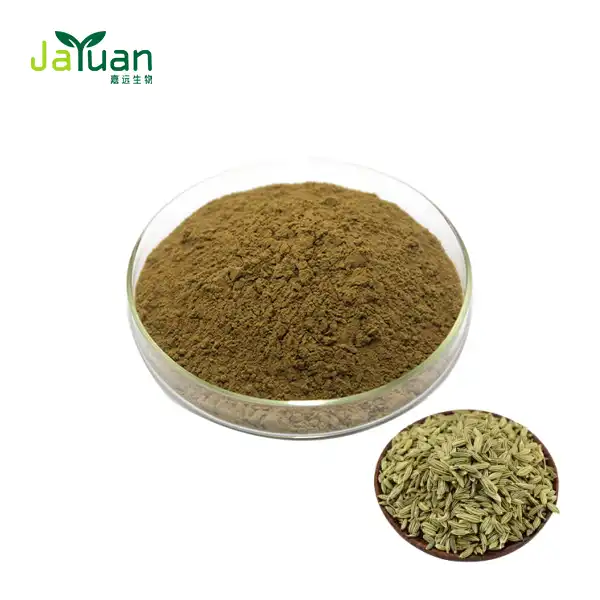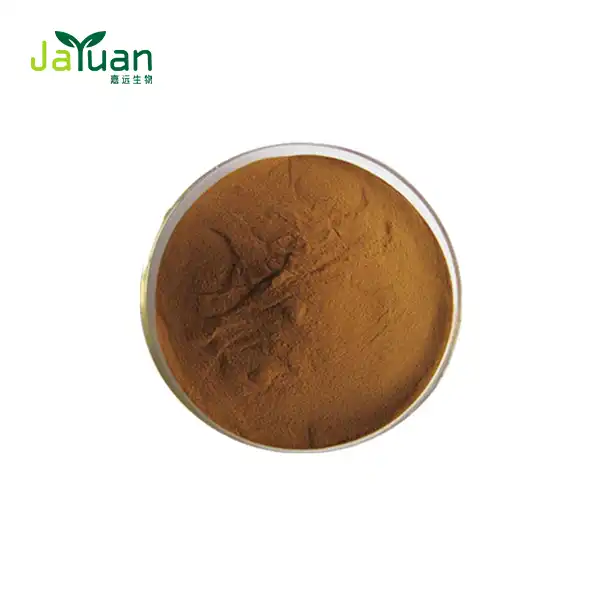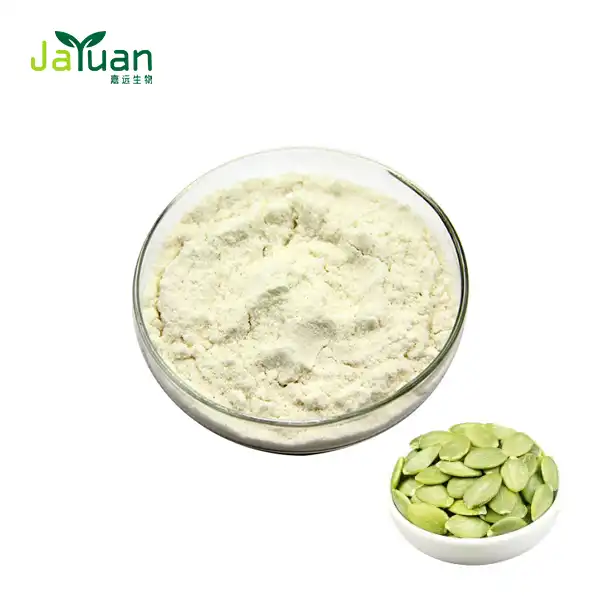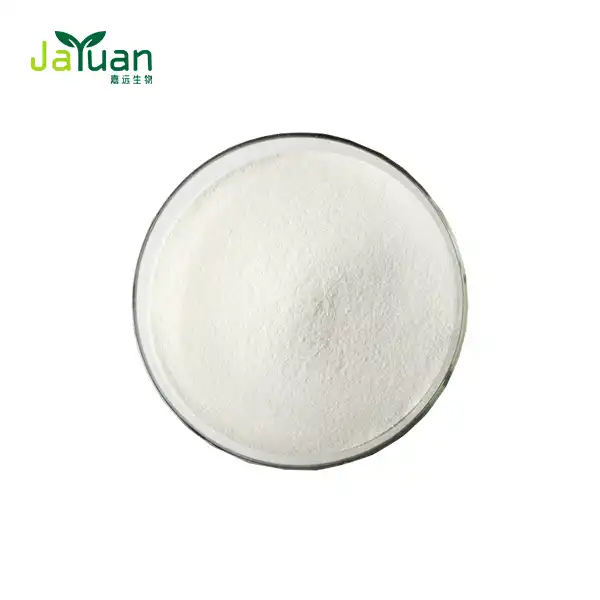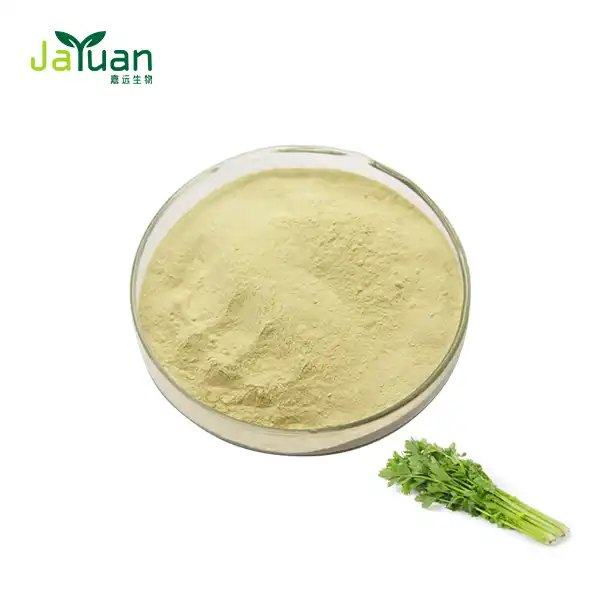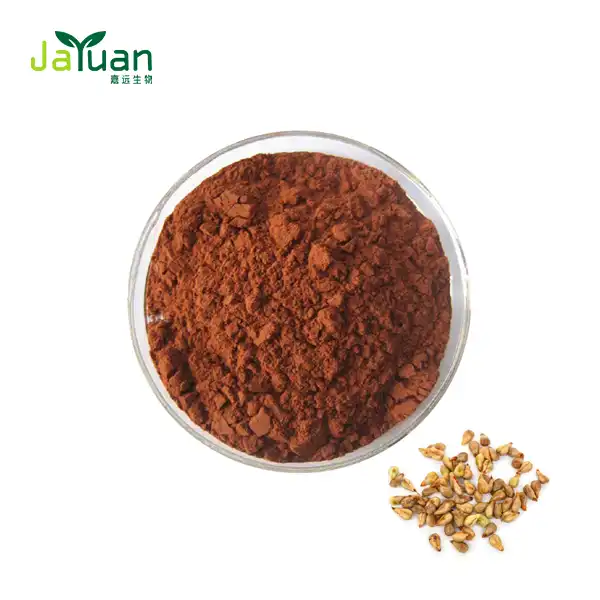What are the side effects of Kuzu?
Introduction
Kuzu, commonly referred to as Kudzu in the West, is recognized for its various applications in herbal medicine. It is often praised for its ability to alleviate ailments such as headaches, indigestion, and even alcohol cravings. However, like any potent substance, it comes with potential side effects that users should be aware of, particularly when focusing on its active ingredient, Puerarin Powder. In this article, we explore the side effects associated with Kuzu, focusing particularly on Puerarin, addressing commonly asked questions to provide a comprehensive understanding.
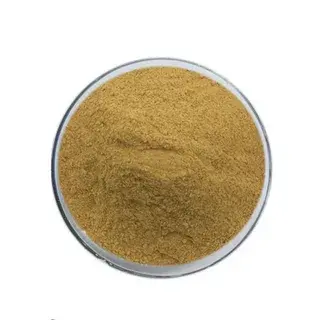
Is Puerarin Powder safe for long-term use?
Puerarin is a natural isoflavonoid known for its antioxidant and anti-inflammatory properties. It is often used in traditional Chinese medicine and is gaining popularity in modern health supplements. However, while these potential benefits are promising, the safety of long-term puerarin consumption requires careful consideration.
Safety Considerations and Potential Risks
Long-term safety studies specific to puerarin are limited, which prompts caution regarding its extended use. Some research indicates that high doses of puerarin may affect liver enzymes, potentially influencing liver function over time. Furthermore, individuals with estrogen-sensitive conditions, such as breast cancer, should approach puerarin use cautiously due to its phytoestrogenic properties. As with any supplement, adverse effects such as gastrointestinal discomfort or allergic reactions may occur, albeit infrequently. Consulting healthcare professionals before initiating long-term puerarin supplementation is advisable, particularly for individuals with pre-existing medical conditions or those taking medications.
Guidelines for Safe Use and Monitoring
To mitigate potential risks associated with long-term puerarin powder use, adhering to recommended dosage guidelines is essential. Starting with lower doses and gradually increasing under medical supervision allows for monitoring of individual tolerance and response. Periodic health assessments, including liver function tests, may be recommended to monitor for any adverse effects over extended usage periods. Incorporating puerarin into a balanced diet and lifestyle, alongside regular exercise, further supports overall health benefits and reduces potential risks. Ultimately, balanced consideration of puerarin's benefits and risks, coupled with informed medical guidance, ensures responsible and safe long-term supplementation practices.
In conclusion, while puerarin shows promise in various health applications, its long-term safety profile warrants careful evaluation. Understanding its effects, considering potential risks, and adopting cautious supplementation practices under medical supervision are crucial steps towards maximizing benefits while minimizing possible adverse effects. This approach supports informed decisions and responsible use of puerarin for sustained health and wellness goals.

What are the potential adverse effects of Puerarin Powder on the liver?
Puerarin is a bioactive compound classified as a phytoestrogen due to its structural similarity to human estrogen. It exhibits antioxidant and anti-inflammatory properties and is often promoted for cardiovascular and neurological health benefits. Despite these potential advantages, research suggests that puerarin may affect liver function, particularly at higher doses or with prolonged use. The liver plays a crucial role in metabolizing substances like puerarin, making it susceptible to adverse effects if metabolic pathways are overwhelmed or altered.
Research Findings and Liver Enzymes
Studies indicate that high doses of puerarin powder can influence liver enzymes, potentially disrupting their normal function. Elevated liver enzymes, such as alanine transaminase (ALT) and aspartate transaminase (AST), are markers of liver inflammation or damage. Research has documented instances where puerarin supplementation led to increased ALT and AST levels in some individuals. These changes may signify liver stress or injury, although the clinical significance can vary widely depending on individual health status and dosage levels.
Risk Factors and Precautions
Individuals with pre-existing liver conditions or those consuming alcohol regularly may face heightened risks associated with puerarin supplementation. Chronic alcohol consumption and liver diseases like hepatitis may compromise liver function, making it more susceptible to the effects of puerarin. Furthermore, due to puerarin's phytoestrogenic properties, individuals with estrogen-sensitive conditions, including certain cancers, should exercise caution. It's advisable for such individuals to consult healthcare professionals before starting puerarin supplementation to assess potential risks and benefits specific to their health circumstances.
Monitoring and Recommendations
Monitoring liver function through periodic blood tests, including ALT and AST levels, is essential for individuals using puerarin over extended periods. Regular health assessments enable early detection of any adverse effects on liver health, facilitating timely intervention if needed. Healthcare providers can offer personalized guidance on dosage adjustments and monitoring protocols based on individual health histories and responses to supplementation. Integrating puerarin into a balanced lifestyle, along with dietary modifications and regular physical activity, supports overall health and may mitigate potential risks to liver function.
Can Puerarin Powder interact negatively with medications?
Puerarin powder is perceived for its bioactive properties, including cancer prevention agent and estrogenic impacts, which might impact how meds are used in the body. At the point when consumed close by drug drugs, puerarin can possibly connect with metabolic pathways associated with drug breakdown and end. This collaboration can adjust drug focuses in the circulatory system, influencing their adequacy or expanding the gamble of aftereffects.
Instances of Likely Associations
Certain drugs, for example, those used by liver chemicals like cytochrome P450 (CYP450), might be powerless to communications with puerarin. Puerarin's effect on these catalysts could either restrain or actuate their movement, affecting the digestion of co-directed drugs. For example, drugs used by CYP3A4 or CYP2C9 proteins, including statins, anticoagulants, and certain antidepressants, may display modified adequacy or expanded aftereffects when joined with puerarin.
Risk Variables and Precautionary measures
Individual weakness to these cooperations can fluctuate in view of variables like measurement, span of purpose, and individual metabolic contrasts. Patients with prior ailments, particularly liver or kidney issues, might be at higher gamble. Also, more established grown-ups and people taking different drugs simultaneously ought to practice alert while considering puerarin supplementation. Medical care suppliers assume a pivotal part in evaluating likely dangers, changing drug regimens depending on the situation, and observing for unfriendly impacts when puerarin is presented.
Conclusion
In conclusion, while Kuzu and its derivative Puerarin Powder offer promising health benefits, including cardiovascular support and symptom relief, users must be mindful of potential side effects. Long-term use warrants careful consideration, especially concerning liver health and possible interactions with medications. Consulting healthcare professionals before starting any new supplement regimen is crucial to personalize care and minimize risks associated with herbal remedies.
If you are interested in our products, you can contact us by email at sales@jayuanbio.com.
References
1. Sajiki J, Takahashi T, Takagi K, et al. Safety evaluation of Kudzu root: assessment of mutagenicity and subchronic oral toxicity. J Food Sci. 2006;71(5):S469-S474.
2. Shen Y, Lindemeyer AK, Gonzalez C, et al. Comprehensive toxicology and pharmacology of pueraria lobata. In: Preedy VR, editor. Neuropathology of Drug Addictions and Substance Misuse. Academic Press; 2016:945-958.
3. Liu MJ, Wang Z, Ju Y, Wong RN, Wu QY. Pueraria lobata (Kudzu root) hangover remedies and acetaldehyde-associated neoplasm risk. Alcohol. 2004;34(2-3):121-128.

